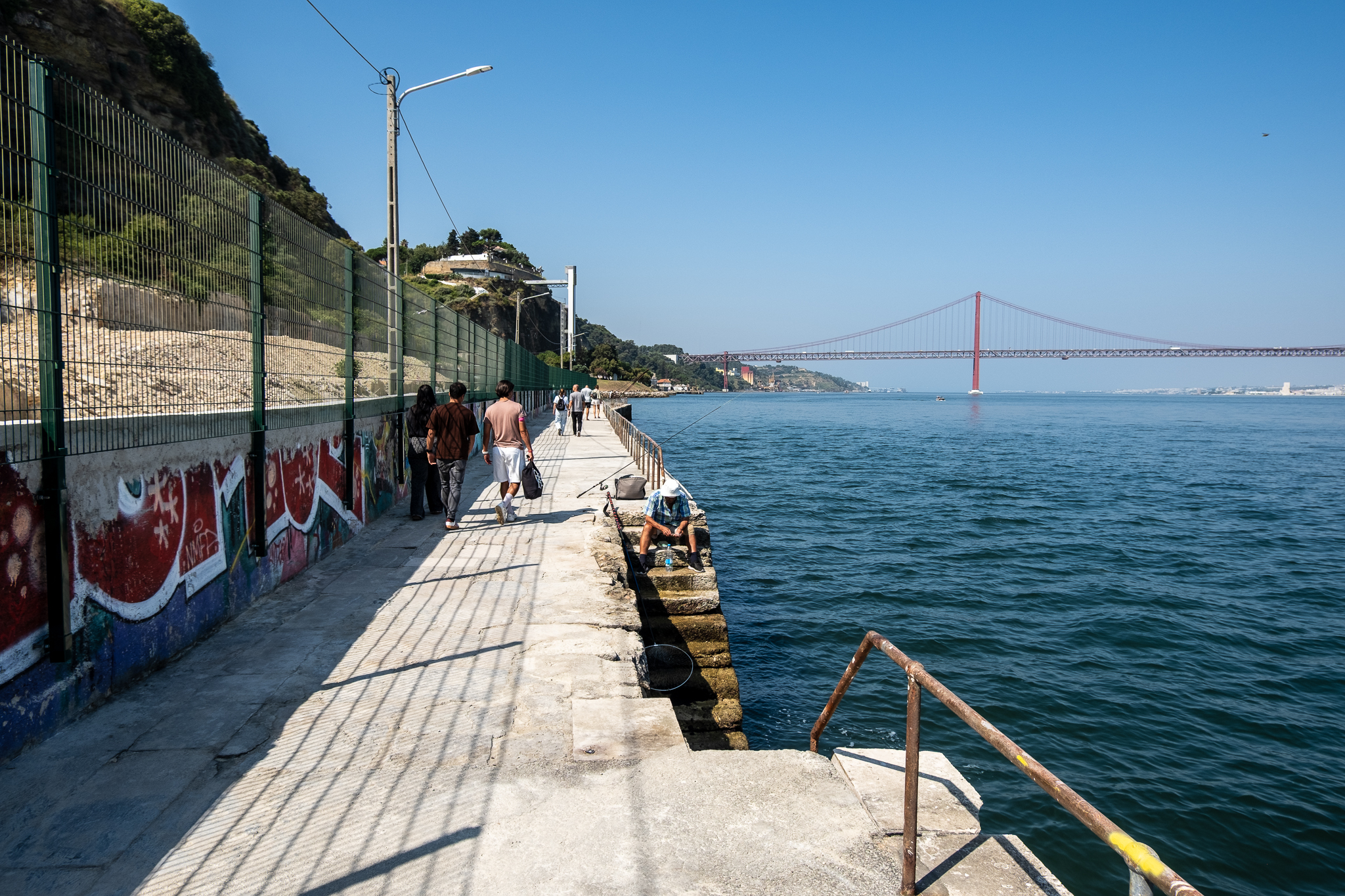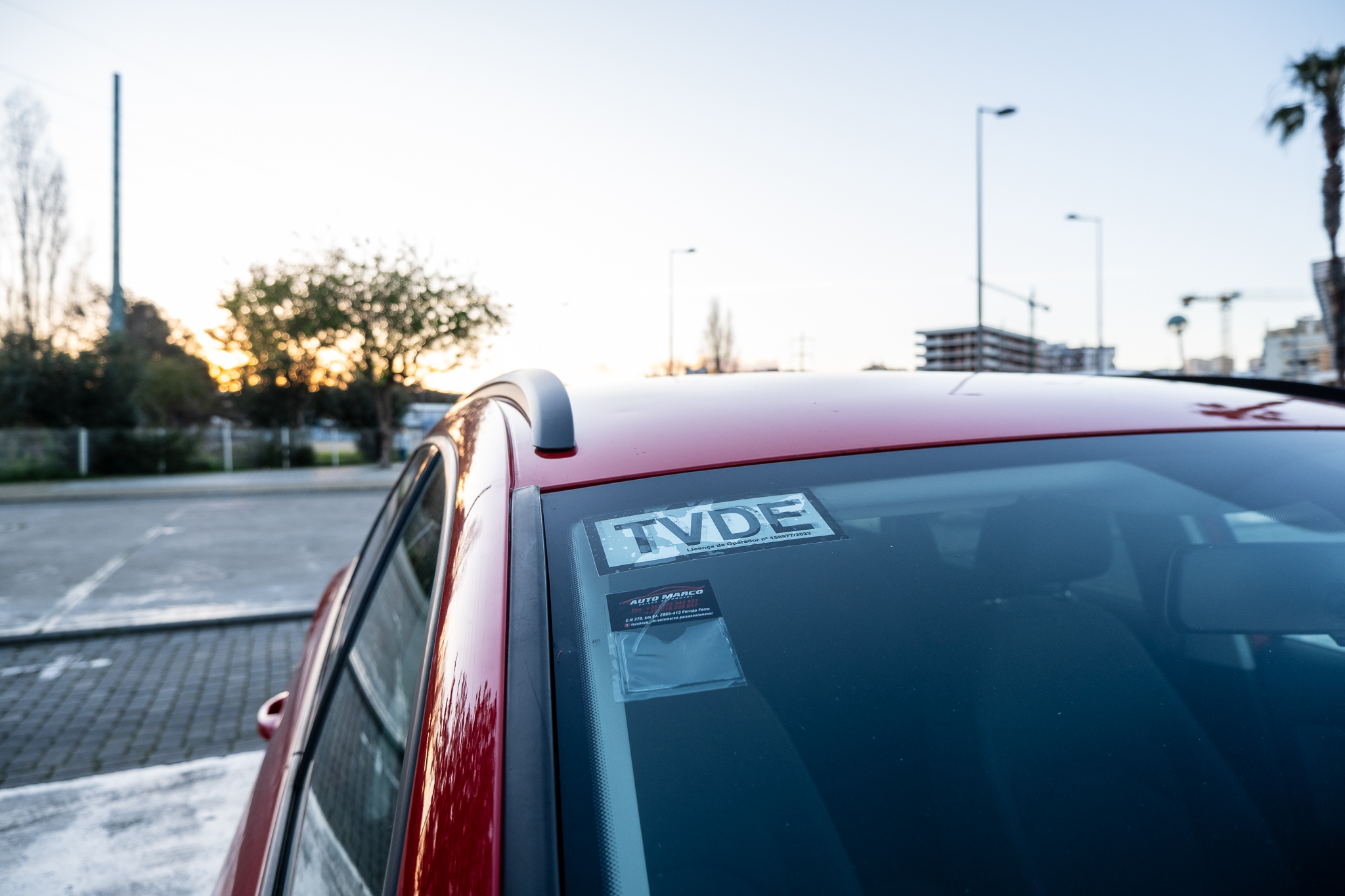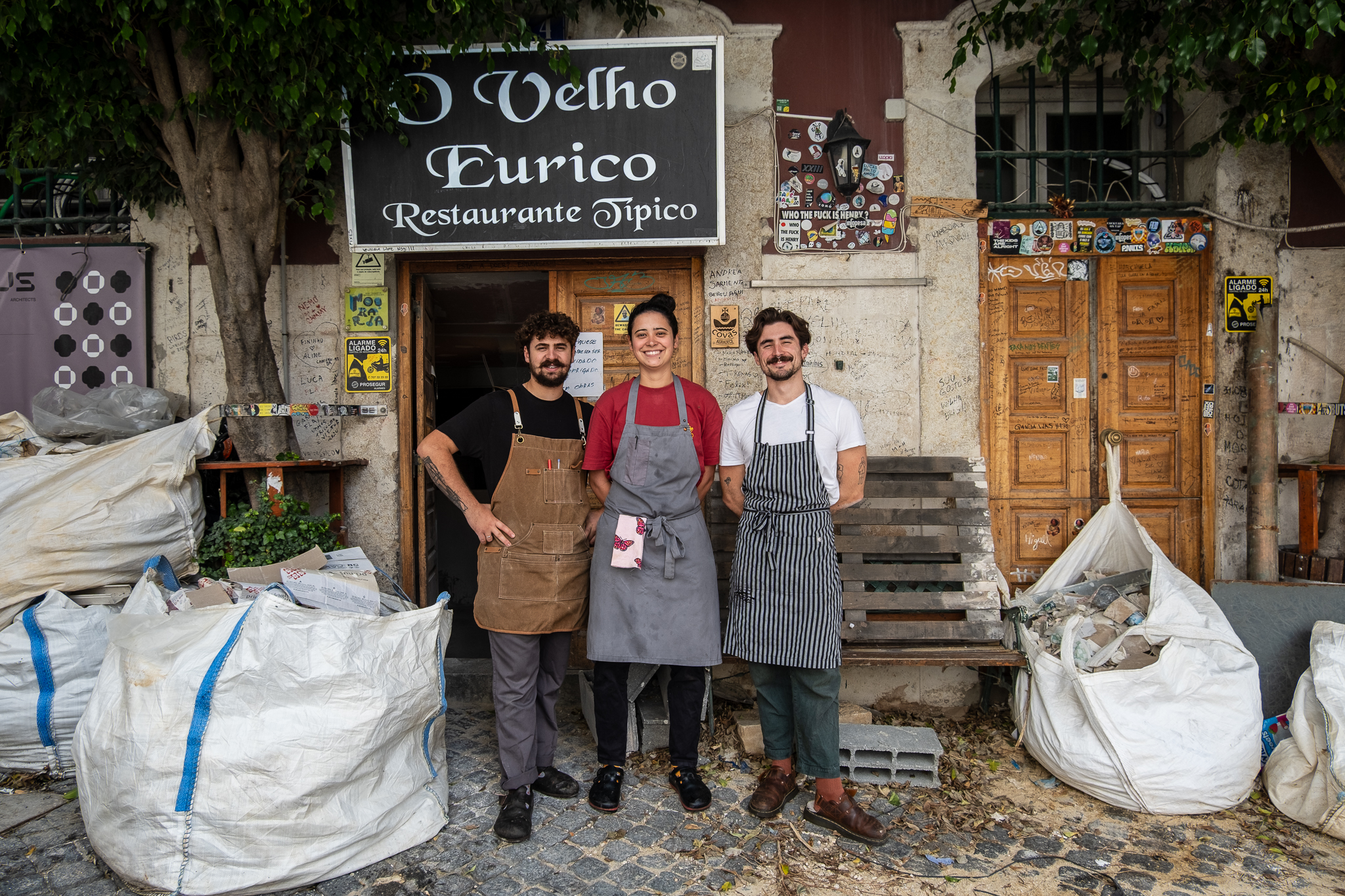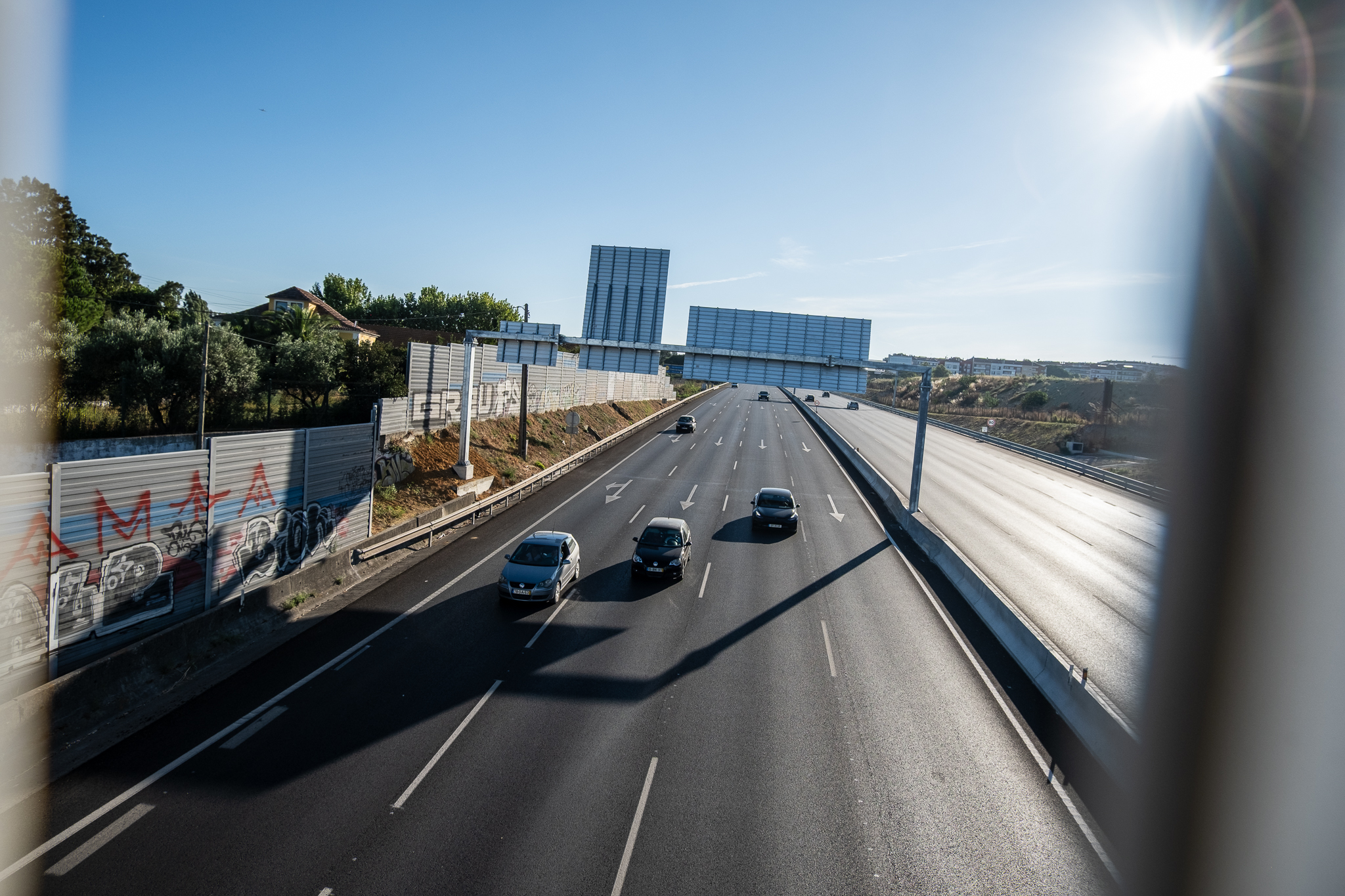Since moving to Penha de França, Ana no longer has a place to safely store her bike. But she has started to move to change that.

Ana Matias, 32 years old, marine biologistIn the middle of 2021, EMEL creates a new electric bike for the city. a network of covered and secure bicycle parking facilities in the city. Living in Mouraria, in an old building, there was no way to safely store a bicycle at night, so the launch of the BiciParks was decisive for Ana to finally open the purse strings and buy an electric bike with the financial support that, at the time, both the Lisbon City Hall and the Government were making available.
Ana had a BiciPark at "5 minute walk" of her home in Chão do Loureiro and that was where she kept her bicycle safely. But when she moved to Alto de São João, in Penha de França, in April of this year, Ana found herself facing a difficulty that many other people feel: and now, where do I leave my bicycle? “Naively, I didn't think this would be a problem."confesses Ana to Lisboa Para Pessoas. The young biologist tells us that she has tried everything: from leaving her bike in the inner courtyard of her building to taking it home. The first option was not well received by the neighborhood, worried about the loss of circulation in the common area of the building, and the second option proved to be impossible, because Ana lives on a third floor, her bicycle is heavy, and the stairs are too narrow.
He has also been looking at various solutions around the neighborhood. He talked to garages that rent places for cars and motorcycles, to a cowork space, to a bicycle store ("but it closed at 7 pm") and with a cultural association ("they told me that they hadn't thought about it, but that it wasn't in the plans") and with the health center. And he even asked at the local church, but it didn't seem "were very willing". As for garages, she was confronted with high rental prices, around €50/month, which she did not find suitable for bicycles.

"Then I started sending e-mails." Ana Matias has solutions up her sleeve, but she needs the help of the city's decision-making bodies to implement them. One of them is a bicycle hangar - a small, enclosed, metal box that can fit at least six bicycles and occupies the equivalent of one car parking space in the public space. Some cities adopt this type of infrastructure in residential areas and public transportation interfaces, where people seek solutions where they can leave their bicycles for extended periods of time, protected from adverse weather conditions and possible vandalism. In Lisbon, there is such a hangar next to the Entrecampos train station and in several river terminals, but none serving densely populated areas such as Penha de França.
Ana tells us that she has already talked to EMEL about a possible bicycle park in Penha de França; the municipal company replied that it is not possible because there is no underground park of the company in that parish. He had a meeting with the President of the Parish Council of Penha de França, who reportedly supported the suggestion of a hangar and promised to put it up after the requalification of Alto de São João for the creation of a new square - a project that was supposed to start in 2021 and should happen in the near future. And he has a conversation scheduled with the office of Alderman Ângelo Pereira, who has the Mobility portfolio, this week. "I will tell you that the President of Penha de França supported this idea" of the bicycle hangar.
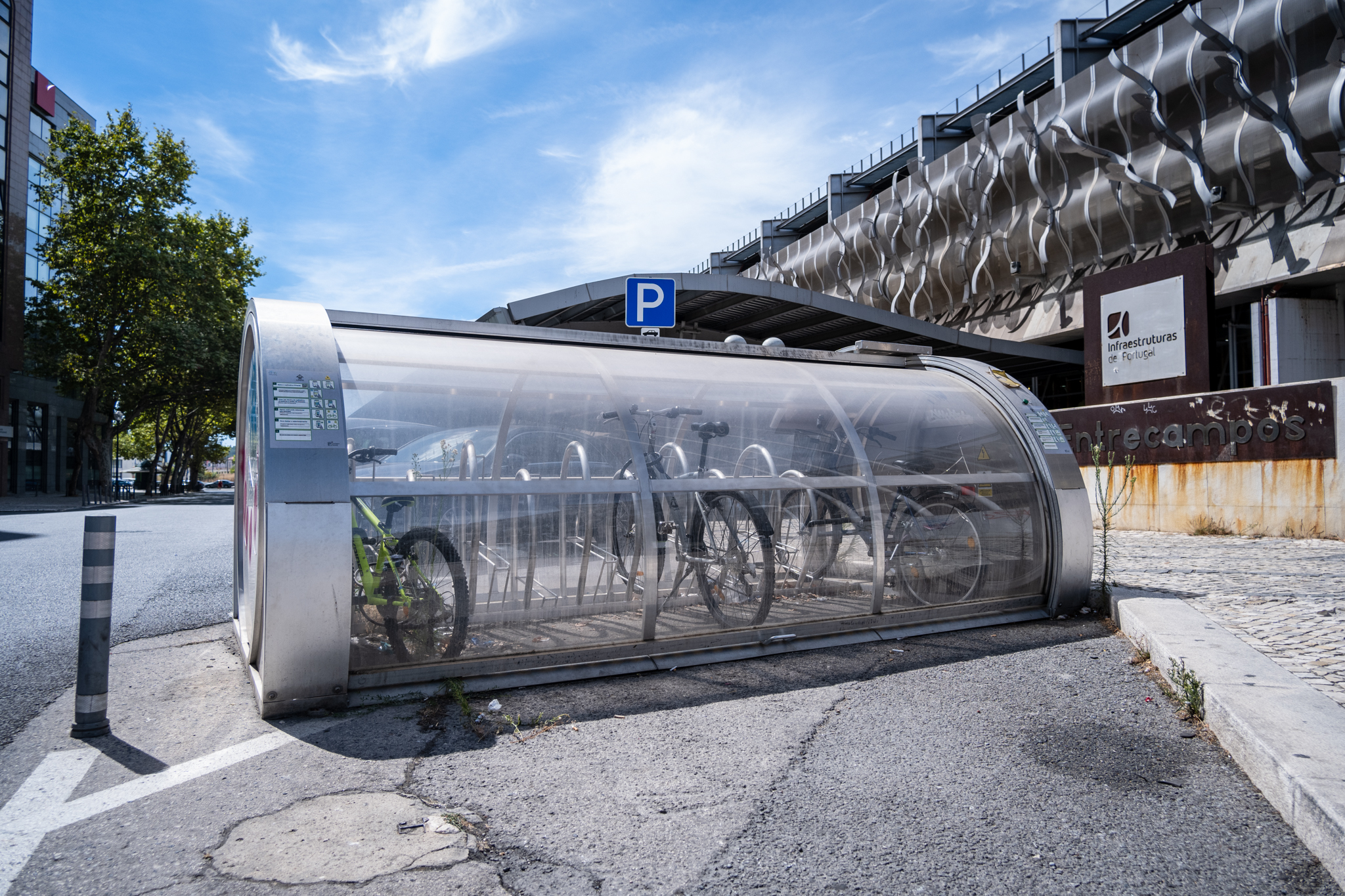
The 32-year-old complains about inequalities between Lisbon's neighborhoods in access to mobility solutions and review it in study recently released by the University of Coimbra. "I don't have a GIRA, I'm not served by Metro (the closest stations are Santa Apolónia and Arroios, both more than a 20-minute walk away), and the buses I have are two. I tried to use the bus once and was kept waiting for an hour; I said never again."he reports. "Half the parish of Penha de França is not served by public transportation, which forces people to use cars." Ana says that she says she is tempted herself but it is something she really wants to avoid -"It takes my patience away from driving in Lisbon and the city is already saturated with cars"; in addition, "if there is one less car on the road, the lives of those who really need or want to drive are made easier".
Survey Data conducted in 2020 to people who benefited that year from the Lisbon City Hall bicycle purchase support program indicate that close to 40% of the respondents keep their bicycle indoors, close to 60% in a garage, storage room or common area of the building and less than 1% leave it on the street. In another survey, this one about bicycle and bus use, it was found that 50% of the respondents value bicycle parking with lockers and in guarded/protected areas.

Ana Matias calls for seriousness and assertiveness from political decision makers. "If they want to encourage soft mobility modes, then they can't just do part of the work. They can't give people money to buy bicycles and then not protect that investment."the young woman understands, arguing that a bicycle shed in a neighborhood would cost about six thousand euros, that is, less than 2% of what the new bike lane on Almirante Reis would cost. "Don't tell me there's no money. There was 400,000 euros to change the bike path for the third time"says Ana. "I've already done all the homework. I know where it could be installed, right here in the Alto de São João parking lot, and I know how much it costs." But there is still a lot to do. Now the marine biologist wants to present the idea to the neighborhood. With the help of the Possible Lisbon collective, she has put online a petition to collect signatures from people who also think a bicycle storage facility in Penha de França is important - they already have about 70 signatures. Now Ana wants to go knocking on neighbors' doors and find out who in the neighborhood rides a bike. "I see a lot of bicycles stuck to the poles. I wonder who they belong to. I've already left notes on some of those bikes introducing my hangar idea."
"If this works here, another neighborhood can do the same." And from the experience with a hangar in Penha de França, it would be possible to have concrete data to support future decisions in other parts of the city. Ana is convinced by the number of bicycles she sees in the parish, circulating or attached to poles, that a hangar would make a difference for many people. "People without bike lanes will get by"but without protected and secure parking it is more complicated, he tells us. Nowadays, he still leaves his electric bike at the BiciPark in Chão do Loureiro, near Mouraria, where he used to live. This makes him use his bike less often. "It takes me a long time to get to BiciPark, it's not efficient. I only use it if I'm going for a big ride on the weekend. It's sad that it's gathering dust there."






